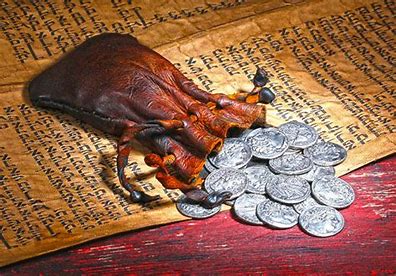Determinism = “the doctrine that all events, including human action, are ultimately determined by causes external to the will. Some philosophers have taken determinism to imply that individual human beings have no free will and cannot be held morally responsible for their actions.” Leaving aside the idea of will for awhile, the idea of determinism is closely related to fatalism but for some it is more palatable because we can have chemical causes, environmental causes and other causes that have nothing to do with God, or so they say. Fatalism at some level has to do with God preordaining things. We have determinists all around us. I was born this way and the mess that is made of my life is the result of things that my parents did and that historical forces outside my control did years ago. I can’t find a job because of slavery that happened hundred of years ago. I can’t get what I want from life because of what paternalistic societies did over the course of history.
Both fatalism and determinism have elements of truth. If God is all knowing and all powerful then things that happen must happen by necessity and what will be will be. God’s will will be done indeed even with out our prayer as Luther says. Since the fall we believe that all things have been corrupted by sin and therefore determined to be separated from God. My reactions to things in life are determined by a antipathy toward God that cannot be bandaged over, it must be excised. All have sinned and fallen short of the glory of God.
From a fatalist perspective Judas for example was destined to do what he did. In the death of Christ the Bible is clear that everything happened as it was ordained to happen. Everything that happened, including Judas’s plot was not only in God’s plan, but was ordained by God to happen the way it did. These events are described with the words of the early church in this way:
They did what God decided should happen. Does that mean they were not held responsible for their actions? Absolutely not! In John 17, Jesus refers to Judas as the one “doomed to destruction.” The choice of Matthias to be a disciple happened so that “he may take part of this ministry and apostleship, from which Judas by transgression fell, that he might go to his own place.”
A determinist would say that Judas life was determined by events that happened early in life, or even before he was born that he had no control over and those determined what he would be. There is evidence that Judas’ surname “Iscariot” is more probably a corruption of the Latin sicarius (“murderer” or “Assassin”) than an indication of family origin, suggesting that he would have belonged to the most radical Jewish group, some of whom were terrorists. The choices that the family made and the choices that their families had made set the table and giving a child a name back then was believed to set their destiny or to mark them for the future. Remember the first thing that God did to the saints of old when he called them was to change their names. He was probably poor and needy and setting him to be the treasurer for the band of disciples was temptation that could not be overcome and so the disciples set him up to fail by entrusting his with something that he was psychologically unable to deal with.
Probably because of his environment according to determinists, and the cycles of prosperity and poverty and his familes antipathy to Roman occupation Judas “shut up his compassion” for the poor (see1 John 3:17). When Mary, Lazarus’ sister, anointed Jesus’ feet with a “very precious” ointment a few days before the Savior’s death, Judas complained about it. His rationalization was that the valuable substance might have been sold, with the revenue distributed to the poor. But John affirmed that his protest had nothing to do with “care for the poor” (John 12:6). It was determined to happen because Judas was selfish. But their is more implied in John’s Gospel and that is that Judas was a sneaky pilferer who by stealth and craft stole the money that was meant to sustain the apostolic band and help the poor. His personality was determined by societal forces that caused his family to be quietly revolutionary and probably criminal in their intent. Judas fate was determined on the day he was born, by culture and genetics and the difference between nurture and nature. Even the love of Jesus that sought to nurture Him was “lost” on someone who by nature was lost to begin with.


